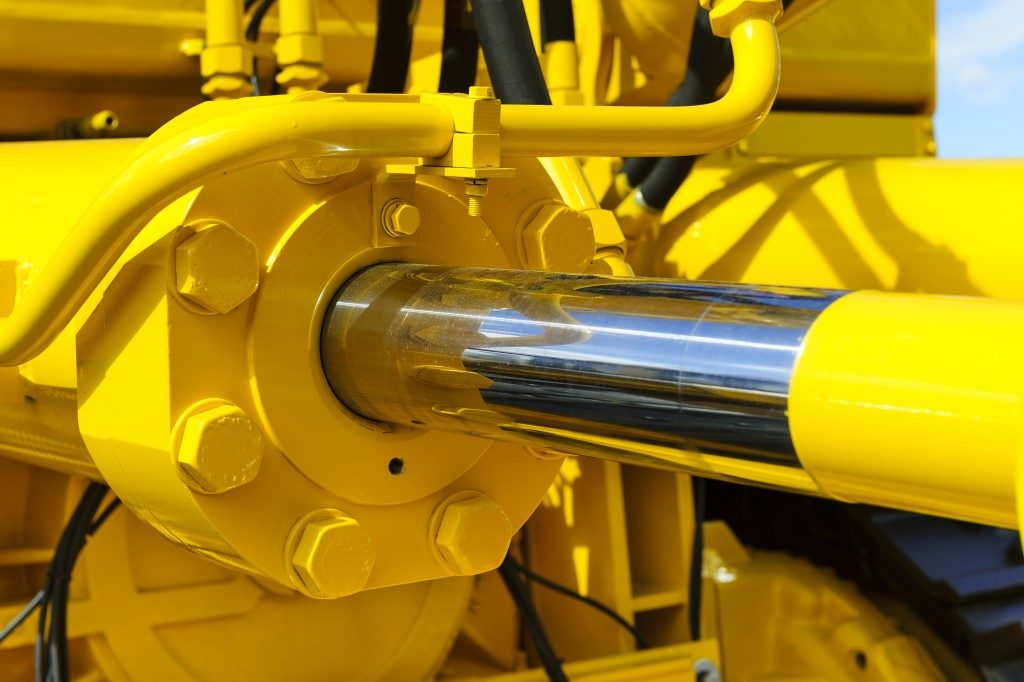Bulldozers, forklifts, cranes and excavators make tasks such as earthmoving and groundwork preparation easier, faster, and safer to accomplish. These machines run on a hydraulic system, while pressurized fluid or liquid is used to power their engines. In order for hydraulic machinery and equipment to run properly, conduct regular maintenance and repair checks to determine any potential issues that may affect your machine’s normal function.
However, machinery problems may also arise due to changing weather, human error, or general wear-and-tear. Here are some of the signs that your hydraulic machinery needs to be repaired or replaced.
Loud, Unusual Noises
Aeration and cavitation may cause your hydraulic machinery to produce loud, unusual sounds.
Aeration occurs when the hydraulic system is contaminated by air, leading to air leaks. The pump seals and pipe fittings are some of the parts that may experience air leaks, causing loud, banging or whining sounds.
On the other hand, cavitation happens when a part of the hydraulic system does not receive the proper amount of hydraulic fluid, causing air bubbles to form. When subjected to high or rapid changes in pressure, the bubbles on the hydraulic fluid pop or implode, causing a shockwave that can damage any surface near or around it.
One of the sources of vibrations and sounds in a hydraulic machine is its hydraulic pump. Hydraulic pumps are designed to muffle the noises made by the rolling and sliding of the rotors, pistons, and other parts within the pump system. When you hear loud, erratic sounds from your machine, it could mean that the hydraulic pump needs to be checked for repairs. Other sources of loud noises that you can inspect are the machine’s electric motor, valve or fluid conductors.
System Leakage

Leaks may be noticeable inside or outside your hydraulic machine. Interior leakage may be intentional to provide lubrication on your machine’s components such as its pistons, spools or seals. However, unintentional leaks, especially in the valve, can affect the system’s pressure, temperature, and performance quality. External leaks are as dangerous as internal leaks. If you spot drips on the surface of your machine or if you notice a puddle of liquid on the construction site, you should take action immediately as it will not only affect the machine’s operational efficiency but it may also be a health and safety concern for your workers.
Low or High Fluid Temperature
Maintaining the stability of fluid temperature in your hydraulic machine is important. If the fluid temperature is too low, the hydraulic fluid may congeal. When this happens, your machinery may be damaged due to friction between the congealed hydraulic fluid and the machine components. In the same way, high fluid temperature can cause damage to your machine by damaging the seals and accelerating fluid degradation.
Slow Machine Operation
When your machine starts to lose speed, it is a clear indication that your machine needs to be repaired. You may notice a reduction in your hydraulic machine’s efficiency when it operates slower than usual or through longer cycles.
The hydraulic machinery and equipment that you use in running your construction business are a valuable investment. You should make sure that they are kept in optimal running condition by conducting preventive maintenance checks regularly. At the same time, you should also be vigilant of the signs mentioned above in order to avoid machine damage or accident in the workplace.

